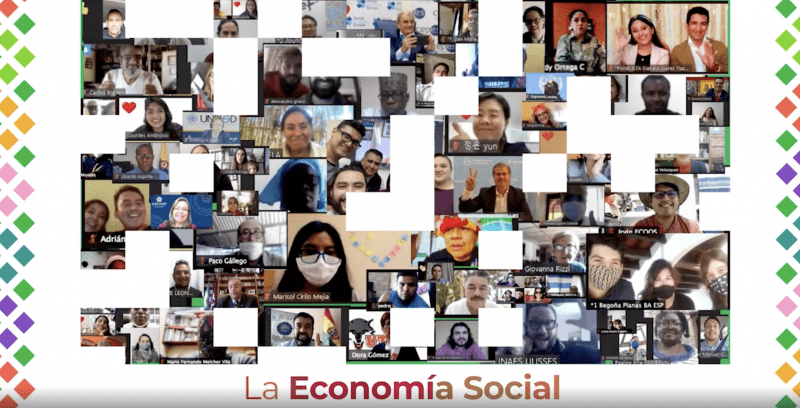
ICA President Ariel Guarco was one of the keynote speakers at the Global Social Economy Forum, which took place virtually on 19-23 October.
Organised by the National Social Economy Institute (Inaes) of Mexico, the event brought together participants from 100 countries across the globe. Over five days, they engaged in 35 sessions on the role of the social and solidarity economy in sustainable and inclusive development.
Speakers included representatives from the United Nations, the Organisation for Economic Cooperation and Development, and the European Union.
“Cooperatives were born out of the needs and aspirations of people who are members of a community and a territory,” said Mr Guarco. “They are, like all experiences of the social and solidarity economy, the result of local efforts to respond to local interests.“
He described the role of the ICA as the voice of the global cooperative movement, which includes three million cooperatives with more than one billion members. He said: "If I had to summarise the 125 years of ICA history, I would say that its task has been to contribute, as a global network, to improving the conditions for the development of local cooperatives."
During a panel discussion on how global challenges could be addressed at local level, Mr Guarco said national regulatory frameworks should be reformed to support businesses that prioritise sustainable development. He also encouraged representatives from the UN, the European Commission and OECD to work together to transform the Covid-19 crisis into an opportunity to “build consensus on the need for standards that do not discriminate” against cooperatives.
“You have to present these issues to local communities, and show that investing in the social economy is a necessity for everyone,” he added. “It is not just about promoting solidarity among the most vulnerable. It is about promoting cooperation as an essential model of economic organising to achieve sustainable development.”
Mr Guarco also talked about the need to rebuild the economy after Covid-19, giving priority to the circular economy, renewable energies, the green economy, the care sector, the digital economy and agro ecology.
Participants also heard from Antonella Noya, Senior Policy Analyst and Manager of the OECD/LEED Forum on Social Innovation at the OECD (Paris). She said social and solidarity economy organisations had shown resilience during the pandemic. By being rooted in the local communities they were better able to understand their needs, she said.
“The crisis increased the visibility of the role played by the social and solidarity economy,” she added. “The role of the SSE is to inspire and transform by creating more innovative and sustainable models.”
Ulla Engelmann, Head of the Unit on Advanced Technologies, Clusters and the Social Economy at DG Grow at the European Commission, agreed that the social and solidarity economy was a crucial actor in tackling the global crisis.
“The social and solidarity economy helps to create economic value by addressing societal needs,” said Andrea Agostinucci, Local Economic Development Advisor at United Nations Development Program - UNDP Art Initiative. “This is why SSE actors showed stronger resilience in tackling the COVID-19 consequences with efficiency, equity and balance with nature."
It was the first time the Global Social Economy Forum was hosted by Latin America. Previous editions were held in Seoul, South Korea (GSEF2013 and GSEF2014); Montreal, Canada (GSEF2016); and Bilbao, Spain (GSEF2018).
“We are in the process of building this collective power, sharing visions for a better world, together we can go further,” said Laurence Kwark, general secretary of the Global Social Economy Forum.




